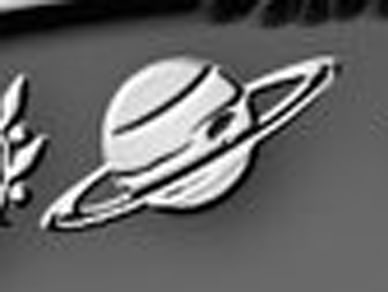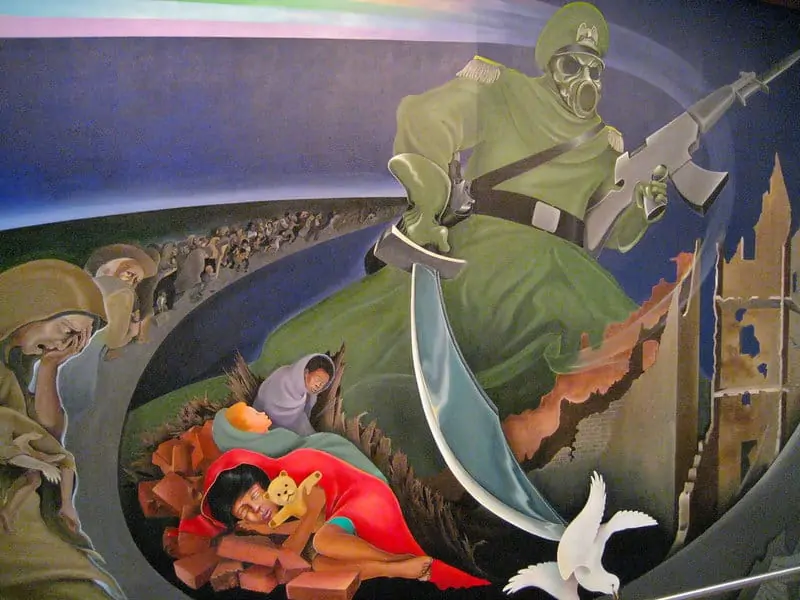
RESTORED: 8/14/22; RESTORED 10/15/23
Well, there has been a new Abrahamic Accord signed that includes the UAE. This is historic, so I thought I would add it to my post on the TRUMP Abrahamic Accord.

The 2020 Abraham Accord
spacer
Premiered Sep 20, 2020
spacer
 |
 |
 |
 |

No longer shall your name be called Abram, but your name shall be Abraham, for I have made you the father of a multitude of nations. I will make you exceedingly fruitful, and I will make you into nations, and kings shall come from you.
[Genesis 17:5-6]
On September 15, 2020, leaders from the United States, Israel, Bahrain, and the United Arab Emirates signed an historic peace accord that will begin the normalization of relations between Israel and her surrounding Arab nations. Initiated by President Donald Trump and his administration, The Abraham Accords represent an unprecedented move toward establishing peace in the Middle East.
Now another Muslim-majority nation in North Africa — Morocco — has normalized ties with Israel, and most geopolitical experts believe there will be more Middle Eastern nations to come.
So how did we get here and where are these Abraham Accords going?

How will the Abraham Accords transform the geopolitical landscape of the Middle East, and more importantly, will these unprecedented accords lay the groundwork for what many believe to be the last days and the time of Jacob’s trouble?
To find out, we first must look back before we can understand the way forward. We start by going back 4,000 years to the man known as the “father of faith.”
That is why it depends on faith, in order that the promise may rest on grace and be guaranteed to all his offspring—not only to the adherent of the law but also to the one who shares the faith of Abraham, who is the father of us all.
[Romans 4:16]
Father Abraham
The three most significant monotheistic religions on earth claim Abraham as a patriarch of the faith. Jews, Christians, and Muslims all trace their origins back to the life and witness of father Abraham. Granted, Abraham had many sons, which eventually grew into many great people groups that settled in the ancient Near East.
When Abram was ninety-nine years old, the LORD appeared to him and said, “I am God Almighty. Walk before Me and be blameless. 2I will establish My covenant between Me and you, and I will multiply you exceedingly.” [3]Then Abram fell facedown, and God said to him, 4“As for Me, this is My covenant with you: You will be the father of many nations. 5No longer will you be called Abram, but your name will be Abraham, for I have made you a father of many nations. 6I will make you exceedingly fruitful; I will make nations of you, and kings will descend from you.
[Genesis 17:1-6]
The Covenant
Now the LORD said to Abram, “Go from your country and your kindred and your father’s house to the land that I will show you. 2And I will make of you a great nation, and I will bless you and make your name great, so that you will be a blessing. 3I will bless those who bless you, and him who dishonors you I will curse, and in you all the families of the earth shall be blessed.”
[Genesis 12:1-3]
The Nation
Abraham did indeed father many nations, but according to the testimony Biblical record — which is the true account of history — the LORD God Almighty only established His covenant of promise with one of Abraham’s descendants. God chose Isaac, not Ishmael, as the son of promise. This is significant because Ishmael’s descendants largely represent the Arab populations of the Middle East, which are now represented as Muslim-majority nations.
Then Abraham fell on his face and laughed and said to himself, “Shall a child be born to a man who is a hundred years old? Shall Sarah, who is ninety years old, bear a child?” 18And Abraham said to God, “Oh that Ishmael might live before you!” 19God said, “No, but Sarah your wife shall bear you a son, and you shall call his name Isaac. I will establish my covenant with him as an everlasting covenant for his offspring after him. 20As for Ishmael, I have heard you; behold, I have blessed him and will make him fruitful and multiply him greatly. He shall father twelve princes, and I will make him into a great nation. 21But I will establish my covenant with Isaac, whom Sarah shall bear to you at this time next year.”
[Genesis 17:17-21]
God’s covenant with Abraham and Isaac was then continued through Isaac’s son, Jacob, the twin brother of Esau [Edom]. The LORD would reaffirm His covent with Jacob by changing His name to Israel — as he would become the father of the 12 tribes of Israel. Esau would later join himself to the tribes of Ishmael becoming perpetual enemies of Israel.
And he said to him, “What is your name?” And he said, “Jacob.” 28Then he said, “Your name shall no longer be called Jacob, but Israel, for you have striven with God and with men, and have prevailed.” 29Then Jacob asked him, “Please tell me your name.” But he said, “Why is it that you ask my name?” And there he blessed him.
[Genesis 32:27-29]
The Promised Land
God’s covenant with Abraham, Isaac, and Jacob [Israel] included some very significant promises. First God promised Israel a land, the boundaries of which were clearly established by the LORD [see Genesis 15:17-21]. This is the Promised Land that was given to Israel after 400 years of bondage in Egypt. As long as Israel loved and obeyed the LORD, He promised to bless and protect and provide for them in the land, but He warned Israel that rebellion and idolatry would result in being expelled from the land.
After you have children and grandchildren and you have been in the land a long time, if you then act corruptly and make an idol of any form—doing evil in the sight of the LORD your God and provoking Him to anger— 26I call heaven and earth as witnesses against you this day that you will quickly perish from the land that you are crossing the Jordan to possess. You will not live long upon it, but will be utterly destroyed. Then the LORD will scatter you among the peoples, and only a few of you will survive among the nations to which the LORD will drive you.
[Deuteronomy 4:25-27]
The people of Israel were indeed expelled from the land in three separate invasions and exiles. The Assyrians exiled the northern kingdom of Israel in 722 B.C. The Babylonians exiled the southern kingdom of Judah in 586 B.C., and the Romans destroyed Jerusalem once again and removed whatever remnant of the Jewish population from the land between 70 and 140 A.D.
Amazingly, just as the Bible predicted, God did not completely destroy His chosen people Israel and after nearly 1900 years of exile, the nation of Israel was reborn in the land against all odds.
But if from there you will seek the LORD your God, you will find Him if you seek Him with all your heart and with all your soul. 30When you are in distress and all these things have happened to you, then in later days you will return to the LORD your God and listen to His voice. 31For the LORD your God is a merciful God; He will not abandon you or destroy you or forget the covenant with your fathers, which He swore to them by oath.
[Deuteronomy 4:29-31]
Of course, the repatriation of the land by the modern state of Israel in 1948 is not the final fulfillment of God’s promise of restoration for Israel. It is, however, a significant prophetic sign of the end of the age that had to be fulfilled in order for God’s prophetic word to be fulfilled in the last days.
The Son of Promise
Now the promises were made to Abraham and to his offspring. It does not say, “And to offsprings,” referring to many, but referring to one, “And to your offspring,” who is Christ.
[Galatians 3:16]
To be clear, the greatest promise of all to Abraham was the coming of the “seed of the woman,” the promised Messiah and Savior of the world [see Genesis 3:15]. All nations of the earth have been blessed with the free gift of eternal life and the forgiveness of sins through the person and work of Jesus Christ, the son of Abraham, the son of David. This is why Gentile believers all over the world also identify with Abraham as the father of faith.
There is neither Jew nor Greek, there is neither slave nor free, there is no male and female, for you are all one in Christ Jesus. 29And if you are Christ’s, then you are Abraham’s offspring, heirs according to promise.
[Galatians 3:28-29]
Peace in the Middle East
For you yourselves are fully aware that the day of the Lord will come like a thief in the night. 3While people are saying, “There is peace and security,” then sudden destruction will come upon them as labor pains come upon a pregnant woman, and they will not escape. 4But you are not in darkness, brothers, for that day to surprise you like a thief.
[1 Thessalonians 5:2-4]
So will there ever be peace in the Middle East?
The answer is … yes!
But before true peace can be established by the coming Prince of Peace — Jesus Christ — there must be a time of trouble such as the world has never seen before nor ever will again.
The Abraham Accords, in my estimation, are both good and bad.
It is a noble cause to broker peace among enemies and try to normalize relationships among neighboring nations that historically have lived in hostility. I do believe that these accords can create more opportunities for trade, commerce, diplomacy, and the general welfare of all nations involved.
At the same time, I also can see the Abraham Accords laying the groundwork for the coming “covenant with many” — spoken of by the prophet Daniel — and the coming 10-king alliance that will be used by the coming Antichrist to form his Middle Eastern Beast empire.
In other words, whatever “peace” is established among Israel and her neighbors in these last days will only be a temporary peace, leading to a false sense of security.
Daniel identifies this coming evil ruler in the following way.
And he shall make a strong covenant with many for one week, and for half of the week he shall put an end to sacrifice and offering. And on the wing of abominations shall come one who makes desolate, until the decreed end is poured out on the desolator.
[Daniel 9:27]
For ships of Kittim shall come against him, and he shall be afraid and withdraw, and shall turn back and be enraged and take action against the holy covenant. He shall turn back and pay attention to those who forsake the holy covenant. 31Forces from him shall appear and profane the temple and fortress, and shall take away the regular burnt offering. And they shall set up the abomination that makes desolate. 32He shall seduce with flattery those who violate the covenant, but the people who know their God shall stand firm and take action.
[Daniel 11:30-32]
It is very possible that the Abraham Accords are normalizing relations in the Middle East in order to prime Israel’s neighbors for a future covenant that will set the stage for the emergence of the “little horn” — aka the Beast.
We also know that the Beast will assume power over a ten-king coalition and turn against Israel in the end, leading one final invasion of the holy land and one last exile of God’s people.
“Thus he said: ‘As for the fourth beast,
There shall be a fourth kingdom on earth,
which shall be different from all the kingdoms,
and it shall devour the whole earth,
and trample it down, and break it to pieces.
24As for the ten horns,
out of this kingdom ten kings shall arise,
and another shall arise after them;
he shall be different from the former ones,
and shall put down three kings.
25He shall speak words against the Most High,
and shall wear out the saints of the Most High,
and shall think to change the times and the law;
and they shall be given into his hand
for a time, times, and half a time.[Daniel 7:23-25]
And the ten horns that you saw are ten kings who have not yet received royal power, but they are to receive authority as kings for one hour, together with the beast. 13These are of one mind, and they hand over their power and authority to the beast. 14They will make war on the Lamb, and the Lamb will conquer them, for he is Lord of lords and King of kings, and those with him are called and chosen and faithful.”
[Revelation 17:12-14]
The prophetic word has told us the end of the story. It has been written.
These new developments should give us pause to ponder the coming of the great tribulation, pray for the people of Israel and her neighbors, and put our hope in the coming King!
Most of all, as more pieces of the prophetic puzzle fall into place, we must remain unshaken in our resolve and unmovable in our faith in Jesus Christ.
Even so, come quickly Lord Jesus. Come!
spacer
spacer

“For when they shall say, Peace and safety; then sudden destruction cometh upon them, as travail upon a woman with child; and they shall not escape.”
1 Thessalonians 5:3
Abraham Accord – Historic Peace treaty between Israel and UAE – Presale


 There shall be a fourth kingdom on earth,
There shall be a fourth kingdom on earth,

















